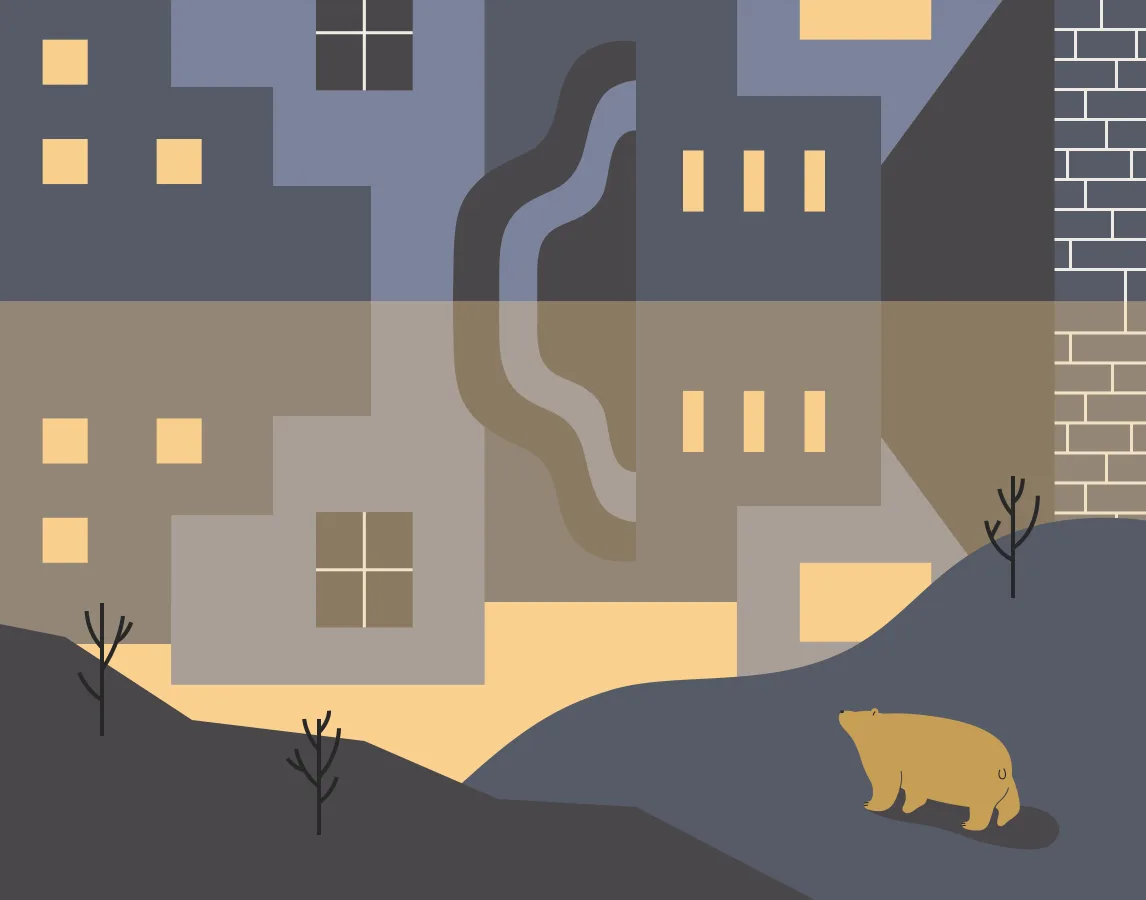If nature is so good for us, why do we love the city?
In modern life, many people derive inner satisfaction from the hustle and bustle and creative energy offered by cities. In fact, in 2015 nearly 63 percent of Americans resided in cities—that’s nearly two of three people. If we’re all clamoring for less stress, why is it that so many of us choose to live somewhere considered, well, stressful?
City life entails public transport that gets you almost anywhere, a preponderance of culture, endless dining options, and a diverse population. In short, cities buzz with energy. William Helmreich, a sociologist at the City College of New York, traversed 6,000 miles of New York City’s streets (the distance between New York and Los Angeles and back to New York), experiencing a slew of neighborhoods, to research “The New York Nobody Knows.” He walked to experience “the teeming life that is happening, on the stoops, in the streets filled with playing children.” New York is a cosmopolitan cornucopia for Helmreich where at night “things change when the sun sets. The avenues throb with far more activity. People are out and about, standing, talking and joking in front of the building, on street corners and enjoying the theaters, restaurants, and squares where citizens congregate.” While some people decry the razzmatazz of city life as loud and raucous, filled with police sirens, fire engines, and honking taxi cabs, other denizens find peace of mind there. Helmreich explains that people born in cities “develop an ability to tune things out. For those people, city life is relaxing.” Urbanites alight into the subway, tune out drumming by street musicians, and are at peace, despite the din.
Country living presents its own obstacles. There are “bugs, bears and poison ivy,” notes Helmreich. Brooklyn native Woody Allen once quipped that “he’s at two with nature,” not simpatico with it. In the U.S., there’s a history of preferring nature over city life. “The U.S. has always had an anti-urban philosophy. Nature and the natural world can be an antidote to all of life’s difficulties,” explains Rosemary Wakeman, director of the Urban Studies Program at Fordham University in New York. Reaction to urban life endures waves and cycles. In the 1950s and 1960s, many middle-class Americans abandoned city life and fled to the suburbs. Cities were left with a mostly poor population and crime spiked. In the last decade, millennials have spearheaded the revival of a host of cities. Millennials “demand a far richer social life outside the confines of a private home. They’re less interested in the house in suburbia. They want a neighborhood, filled with restaurants, bars and access through social media,” Wakeman says. Housing prices in suburbia dipped as the cost of owning a car—despite some temporary lowering of gasoline prices— escalated. Many cities are incorporating the love of nature into the fabric of urban life. Rooftop gardens, farmer’s markets, waterfront promenades, new parks and greenery are spiking in many urban centers. In fact, many suburbs are taking a page out of city life. “There’s a certain urbanization of suburban life,” Wakeman points out. Suburbs are trying to create a vibrant center city and downtown area, more public spaces, and creating more of a sense of neighborhood. Urban planner Jane Jacobs who in 1961 wrote “The Death and Life of Great American Cities,” used her neighborhood of the West Village in Manhattan as the quintessence of urban life. Walking down the streets, Jacobs interacted with neighbors and shopkeepers, and felt a strong sense of community. Sure, city living isn’t for everyone. But if you find yourself gravitating toward a tapestry of bright lights, hustle and bustle, and brimming energy, then it turns out, you’re in pretty good company.



Be kind to your mind
- Access the full library of 500+ meditations on everything from stress, to resilience, to compassion
- Put your mind to bed with sleep sounds, music, and wind-down exercises
- Make mindfulness a part of your daily routine with tension-releasing workouts, relaxing yoga, Focus music playlists, and more
Meditation and mindfulness for any mind, any mood, any goal

Stay in the loop
Be the first to get updates on our latest content, special offers, and new features.
By signing up, you’re agreeing to receive marketing emails from Headspace. You can unsubscribe at any time. For more details, check out our Privacy Policy.
- © 2025 Headspace Inc.
- Terms & conditions
- Privacy policy
- Consumer Health Data
- Your privacy choices
- CA Privacy Notice
